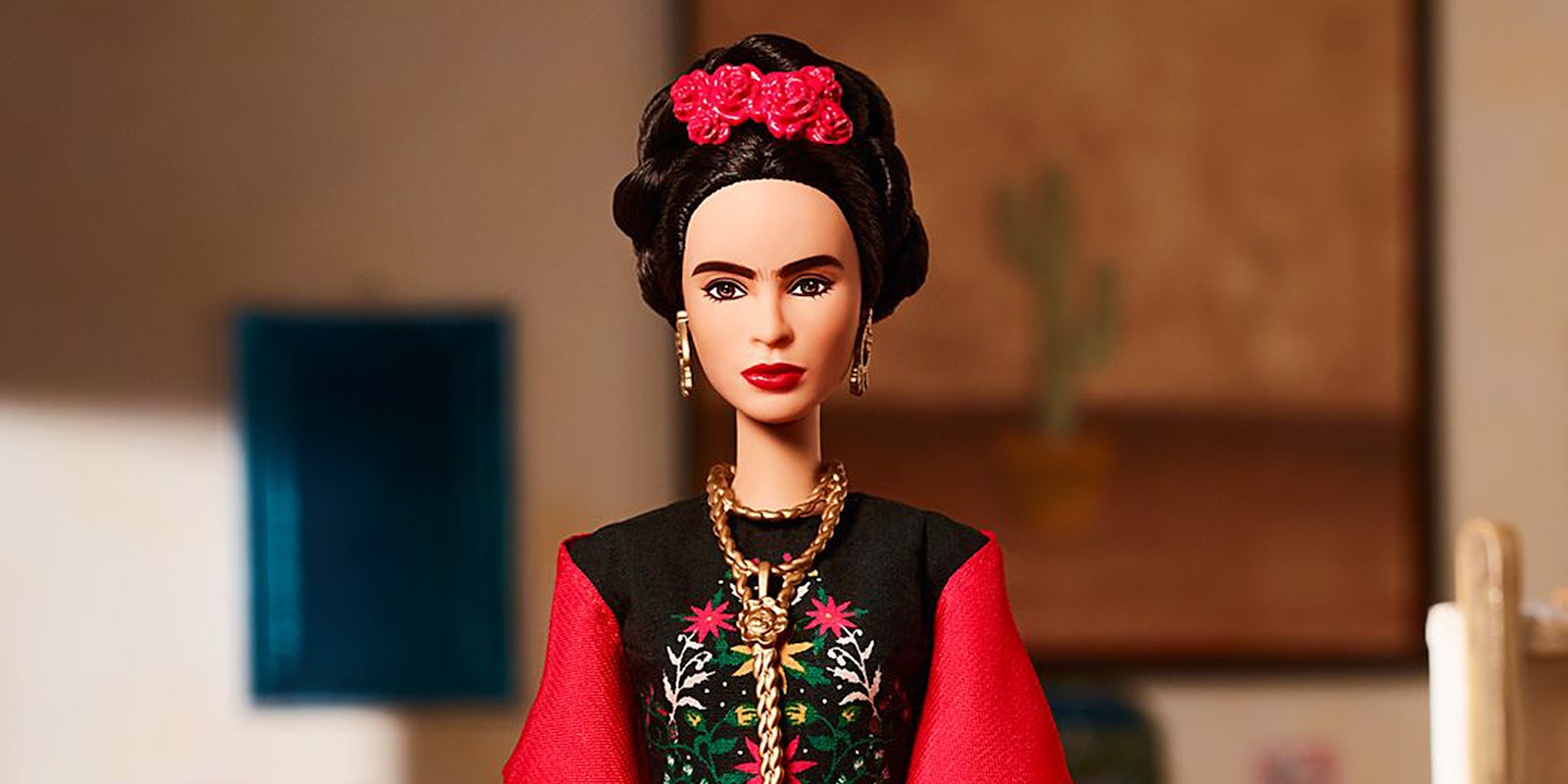It’s International Women’s Day today, and to celebrate the occasion, Barbie is hosting a new campaign called “Role Models,” highlighting 19 women leaders across various careers. But the move is getting some flack for objectifying the very women it tries to uphold.
The Role Models campaign was first unveiled by Mattel earlier this week in a tweet stressing Mattel’s commitment to “shining a light on empowering female role models past and present” and empowering young girls. The line-up includes various new Barbie models based on real-life celebrities, such as Olympian Chloe Kim, Wonder Woman director Patty Jenkins, feminist Mexican artist Frida Kahlo, and NASA physicist Katherine Johnson.
But in many cases, Mattel significantly changed each woman’s appearance, often by slimming their waists, changing their facial features, and whitewashing parts of their identity.
In honor of #InternationalWomensDay, we are committed to shining a light on empowering female role models past and present in an effort to inspire more girls.
— Barbie (@Barbie) March 6, 2018
Join the conversation by sharing your role models using #MoreRoleModels. pic.twitter.com/5oJnZywk7s
For instance, Patty Jenkins’ face looks almost unrecognizable in Barbie form, suggesting Mattel purposefully made her look like a young, conventionally attractive model for the campaign. Meanwhile, boxer Nicola Adams OBE is depicted with thin, stickly arms and slim proportions, despite the fact that the female Olympian is physically built to withstand the intense rigor that comes with her sport.
And most notably of all, Frida Kahlo’s facial features and skin tone have been significantly changed, toning down her unibrow, making her skin lighter, removing her facial hair, and giving her a smooth, symmetrical face that mirrors the fashion industry’s preference for white, American middle-class stylistic preferences. The doll even depicts her standing up, despite the fact she was constricted to a wheelchair later in her life.
“I can’t help but feel that it would’ve been even more impactful to see the artist depicted in a way that was more true to herself—not to mention her own self-portraits,” one critic, Teen Vogue’s Karina Hoshikawa, argued this week.
Suffice to say, Twitter users are specifically upset with the Kahlo doll, arguing that Mattel is purposefully dropping her feminist message in order to appeal to a wider, whiter, and able-bodied audience.
this is a mess
— bilatinthem (@hijxdelsol) March 7, 2018
a) its ableist, she was a disabled womxn and yall are erasing that critical part of her
b) yall are adhering to western beauty standards by getting rid of her unibrow
c) she was a communist, the fact ur turning her into some mass produced commodity is appalling https://t.co/7pXBlQBIDd
https://twitter.com/VoidJumpingJB/status/971599920875491328
WHERE IS FRIDA’S UNIBROW. SIS DIDN’T STYLE IT FOR NOTHING pic.twitter.com/TWV2N6KSom
— Diana? (@dicvzxo) March 8, 2018
I love the IDEA of a Frida Barbie but I agree with everything you’re saying . I’ve see tee shirts of her face with super thin jaw and harsh cheek bones and no unibrow and “luscious” red lips and it’s just NOT frida and she’s beautiful just as she is without alterations pic.twitter.com/Dn0vbVJVfy
— CeceScissorhands🔮 Mooncraft Coven (@Hylian_Witch) March 7, 2018
There’s also the fact that Barbie dolls constantly spit out romanticized images of women that are fantastical at best, like hourglass curves and extremely thin waists. That means Barbie is sending a pretty misogynistic message to young girls: They can be whoever they want, as long as they’re thin and attractive.
https://twitter.com/KatieMercer_BM/status/971756133395386368
https://twitter.com/alison_rixon/status/971568095092400129
https://twitter.com/KeithSaiph/status/971562906042200064
glad you’re being celebrated, but why is it so thin?
— Ian Cummings (@iancummings) March 7, 2018
Mattel isn’t the only company struggling with whitewashing marginalized women. Kahlo’s depiction in Pixar’s Coco last year earned scorn after the film stripped her of her wheelchair. Barbie may stand out for its long history of stereotyping women, but companies throughout America have a long way to go before they treat marginalized women with the respect they deserve.


